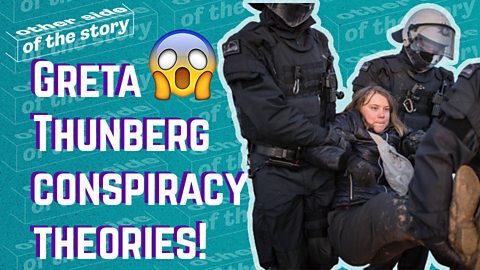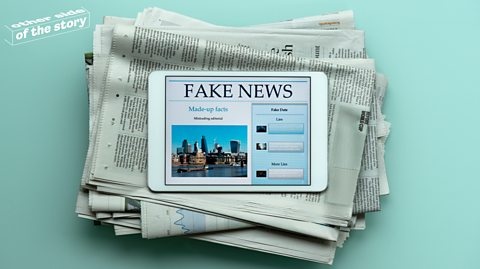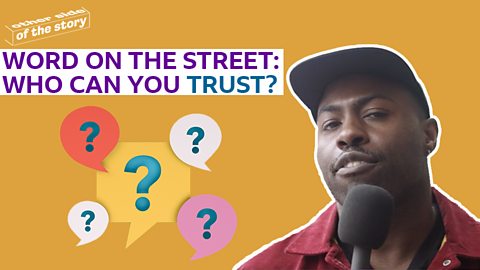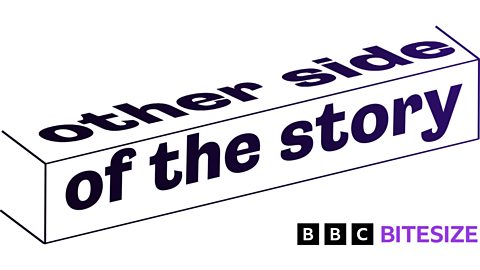Whether itŌĆÖs the outbreak of fires in Hawaii, the announcement of new oil and gas licences in the UK, or Greenpeace staging a protest at Prime Minister Rishi SunakŌĆÖs house, you might have seen climate change in the biggest news stories of the day.
But as well as hearing the facts on this issue, you may have also come across some fake news about the topic. In fact, some people even call climate change itself ŌĆśfake newsŌĆÖ, even when itŌĆÖs been proven to be real. Why does this happen?
What is climate change?
Watch this TikTok from the │╔╚╦┐ņ╩ų Verify team, who explain why climate change is real and define what global warming is.
Is climate change real? Maybe you think climate change is a hoax. But the science couldn't be clearer. Global warming is happening and the way we live is making things worse.
Our planet is now 1.2 degrees warmer than it was in the 1800s. And that's because we've been pumping the atmosphere with greenhouse gases, gases that trap the Sun's heat, making the planet hotter.
Even if you choose to ignore all this, look around - extreme weather is becoming more and more frequent. And that is happening because the climate is changing.
What we choose to do to tackle the problem, that's politics, it's up for debate. But global warming is a fact.
As the presenter says, the science couldnŌĆÖt be clearer ŌĆō climate change is a fact and it canŌĆÖt be denied. More extreme weather events are now more common due to the planet getting hotter.
There are occasions where there can be some debate about what we do to try and prevent more warming, for example discussions about how quickly to act and what actions might be best.
But if something has been proven to be a fact, why is there so much misleading information about it?
What are the different types of fake news about climate change?
Climate change misinformation
There are two big types of fake news ŌĆō misinformation and disinformation. Misinformation is fake news that is created and spread by a MIStake ŌĆō by someone who doesnŌĆÖt realise that itŌĆÖs false.
Some aspects of climate change can seem complex, and because of this, people might make mistakes when trying to understand the science. For example, calling climate change ŌĆ£naturalŌĆØ is misinformation that someone might spread.
Watch this TikTok of a │╔╚╦┐ņ╩ų Verify journalist debunking climate change misinformation.
It's climate change natural? Yes, and no. The climate has changed a lot over time. But the radical change we're seeing right now isn't natural.
Since the Earth was formed more than four and a half billion years ago, there have been cycles of warming and cooling. And that's because of volcanic eruptions, our Earth's orbit around the sun - natural causes.
Now the last time the planet got a lot hotter, temperatures went up by about five degrees. That took ten thousand years. Today, in just about a hundred years, temperatures have gone up already by about one degree.
Now that's 20 times faster than before. And scientists have proven this radical change isn't natural. It's man made. We've been pumping the atmosphere with greenhouse gases which trap the heat from the sun.
So, can we really blame nature for this one? No.
A common myth is that thereŌĆÖs always been temperature increases and so climate change is perfectly natural and nothing to worry about.
Whilst thereŌĆÖs some truth in this, as we have had temperature increases throughout time, it can be misleading, because the changes weŌĆÖre seeing at the moment are predominantly down to human behaviour and non-natural causes.
Get the facts on global warming here with The Regenerators from │╔╚╦┐ņ╩ų Bitesize.
Climate change disinformation
As well as people making genuine mistakes, there are some people who benefit from spreading fake news about the planet. They may do this to make money, make a political point or just cause trouble.
This would be classed as disinformation ŌĆō fake news thatŌĆÖs created or spread deliberately, by someone who knows full well that itŌĆÖs false.
For example, the widespread online conspiracy that the arrest of climate activist Greta Thunberg had been staged for publicity purposes.
Many social media posts and videos suggested that the police waited around deliberately to pose and smile for the cameras with Greta.
However, the facts were that it was a real protest (activists were demonstrating against the expansion of a coal mine) and that Greta was detained, rather than arrested.
Local police told the │╔╚╦┐ņ╩ų that they were waiting for transport rather than holding a photo opportunity. Yet despite these facts being out in the open, people still chose to spread the conspiracy that it was a fake arrest which had been staged.
This could be seen as an example of climate change disinformation, and result in people questioning whether they should trust Greta.
In turn, this may lead people to doubt the science behind climate change and the impact it could have.
There are many reasons why people spread or create fake news, whether by accident or on purpose. Check out more of our content to learn how to get the other side of the story on big news stories and find out the facts about big issues.



